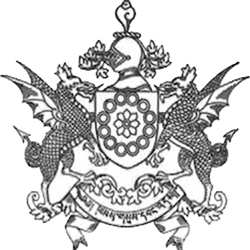Culture Department

The “wealth” of a state and a nation is often gauged by its cultural and social advancement. Sikkim is wealthy in this respect. The splendor and diversity of Sikkim’s art, literature, rituals, culture and dances, with its lyrical appeal and richness are incomparable. Sikkim’s ethnic communities and sub-communities have their own language and distinctive folk traditions as varied and beautiful as the people themselves. These have been nurtured and allowed to flourish aided by a series of important initiatives by the state government since 1994.
The Cultural Affairs and Heritage Department has grown into a vibrant, engaged department under the support and guidance of the State Government. To augment the functions of the department, the government constituted two boards in 2014: the Sikkim Culture, Dance and Film Board, each headed by a chairman.
1. All the main languages spoken in Sikkim have been given the status of a “state language”. Notably, Bhutia, Lepcha and Limboo languages has been included in college curricula, while other languages such as Rai, Gurung, Newar, mangar and Tamang are taught till secondary school.
2. Financial help is directly given to different communities to promote research in their respective languages. Festivals of every ethnic community such as lepcha’s Tendong Lho Rum Faat, bhutia’a Losoong and Pang Lhabsol, Limboo’s Teyongshi Sirijonga Sawan Tongnam, Tamang’s Sonam Lochhar, Rai’s Sakewa, Gurung’s Tamu Lochhar, mangar’s Barahimijong, Newar’s Indrajatra and Dasain and Tihar of Bahun, Chettri and other Nepali sub-communities has been declared gazette holidays.
3. Sikkim has a large repository of rich animistic rituals, which forms a major part of the local medicinal system. The government proactively encourages and rewards men and women who have played a key role in preserving traditional healing practices.
4. Having recognized the social contribution of faith healers, the State government now wishes to go one step further by establishing a folk healer center in Assam Lingzey, East Sikkim. The center will showcase all the traditional healers belonging to the different ethnic communities of Sikkim and conserve for posterity the rituals, local incantation, religious products, beads, butter oil lamps and prayer wheels used by faith healers.
5. The cultural centers and community bhawans such as the Sherpa community center at Okhrey, West Sikkim have promoted harmonious co-habitation of all ethnic and religious communities. In 2008-09, financial aid of Rs. 50.00 lakhs each to the ethnic communities has been provided for the construction of their community bhawan. The government also gives financial assistance either for preservation or construction of traditional houses such as the Lepcha traditional house at Namprikdang under Dzongu, North Sikkim
The Cultural Affairs and Heritage Department has grown into a vibrant, engaged department under the support and guidance of the State Government. To augment the functions of the department, the government constituted two boards in 2014: the Sikkim Culture, Dance and Film Board, each headed by a chairman.
1. All the main languages spoken in Sikkim have been given the status of a “state language”. Notably, Bhutia, Lepcha and Limboo languages has been included in college curricula, while other languages such as Rai, Gurung, Newar, mangar and Tamang are taught till secondary school.
2. Financial help is directly given to different communities to promote research in their respective languages. Festivals of every ethnic community such as lepcha’s Tendong Lho Rum Faat, bhutia’a Losoong and Pang Lhabsol, Limboo’s Teyongshi Sirijonga Sawan Tongnam, Tamang’s Sonam Lochhar, Rai’s Sakewa, Gurung’s Tamu Lochhar, mangar’s Barahimijong, Newar’s Indrajatra and Dasain and Tihar of Bahun, Chettri and other Nepali sub-communities has been declared gazette holidays.
3. Sikkim has a large repository of rich animistic rituals, which forms a major part of the local medicinal system. The government proactively encourages and rewards men and women who have played a key role in preserving traditional healing practices.
4. Having recognized the social contribution of faith healers, the State government now wishes to go one step further by establishing a folk healer center in Assam Lingzey, East Sikkim. The center will showcase all the traditional healers belonging to the different ethnic communities of Sikkim and conserve for posterity the rituals, local incantation, religious products, beads, butter oil lamps and prayer wheels used by faith healers.
5. The cultural centers and community bhawans such as the Sherpa community center at Okhrey, West Sikkim have promoted harmonious co-habitation of all ethnic and religious communities. In 2008-09, financial aid of Rs. 50.00 lakhs each to the ethnic communities has been provided for the construction of their community bhawan. The government also gives financial assistance either for preservation or construction of traditional houses such as the Lepcha traditional house at Namprikdang under Dzongu, North Sikkim

